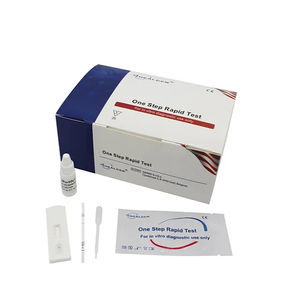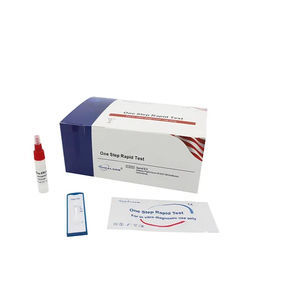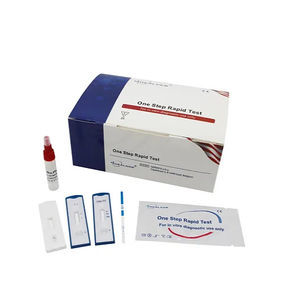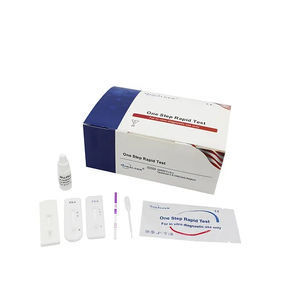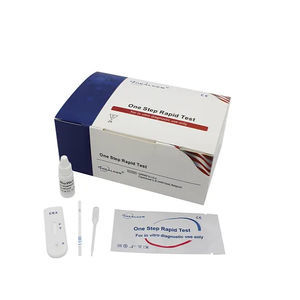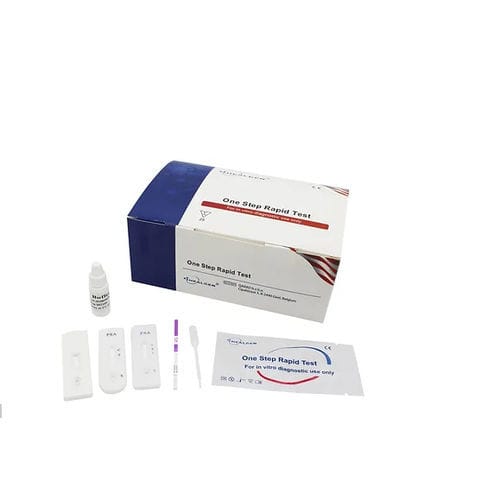
- Laboratory
- Laboratory medicine
- Rapid cancer test
- Healgen Scientific

- Products
- Catalogs
- News & Trends
- Exhibitions
Rapid PSA test GEPSA-302afor tumour detectionfree PSAblood
Add to favorites
Compare this product
Characteristics
- Applications
- for tumour detection
- Tested parameter
- PSA, free PSA
- Sample type
- blood, serum, plasma, whole blood, urogenital
- Analysis mode
- chromatographic immunoassay, molecular
- Format
- cassette
- Result display time
10 min
Description
The PSA Semi-Quantitative Rapid Test Device (Whole Blood/Serum/Plasma) is a rapid chromatographic immunoassay for semi-quantitative detection of Prostate Specific Antigen (PSA) in human whole blood, serum or plasma. It is intended for use at point of care facilities to measure total prostate specific antigen (tPSA) in human whole blood, serum or plasma. It is for professional in vitro diagnostic use only.
Prostate specific antigen (PSA) is produced by prostate glandular and endothelial cells. It is a single chain glycoprotein with a molecular weight of approximately 34 kDa. (1) PSA exists in three major forms circulating in the serum. These forms are free PSA, PSA bound to α1–Antichymotrypsin (PSA-ACT) and PSA complexed with α2–macroglobulin (PSA-MG). (2) PSA has been detected in various tissues of the male urogenital system but only prostate glandular cells and endothelial cells secrete it. The PSA level in the serum of healthy men is between 0.1 ng/mL and 2.6 ng/mL. It can be elevated in malignant conditions such as prostate cancer, and in benign conditions such as benign prostatic hyperplasia and prostatitis.
A PSA level of 4 to 10 ng/mL is considered to be in the “gray-zone” and above 10 ng/mL is highly indicative of cancer. (3) Patients with PSA values between 4 - 10 ng/mL should undergo further analysis of the prostate by biopsy. Authorities have begun to explore the possibility of using PSA levels lower than 4.0 ng/mL as the upper limit of normal for screening examinations. By lowering the PSA cutoff from 4 to 3 ng/mL, an increase in cancer detection by 13.2% can be achieved.
*Prices are pre-tax. They exclude delivery charges and customs duties and do not include additional charges for installation or activation options. Prices are indicative only and may vary by country, with changes to the cost of raw materials and exchange rates.

